Vander Wals Salute Farmers on National Farmer’s Day
Local News October 12, 2023 Staff 0
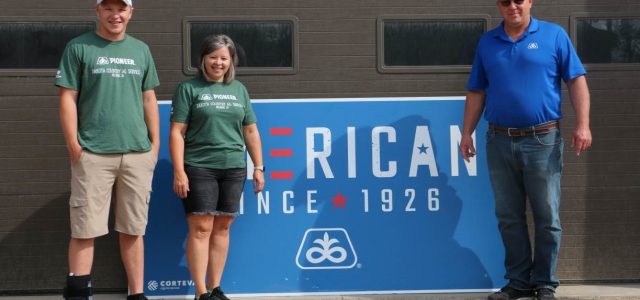

Today is National Farmer’s Day. A day celebrated since the 1880s to give thanks to farmers past and present for putting food on our tables and contributing to our local and national economies. Although we set aside October 12 to honor our farmers, every day is Farmers Day at Dakota Country Ag Services on Highway 15 in Milbank.
Inside, you can smell fresh coffee brewing, and there’s time to shoot the breeze and munch on a cookie or two. The fellowship fostered in the early days of farming has not been plowed under, but technology is transforming the way nearly everything is being done today.
Paul and Dawn Vander Wal own and operate Dakota Country Ag Services. Their son, Riley, recently joined the business.Or more accurately, he rejoined the business. Paul and Dawn purchased it from Clayton Tucholke in 2008 when Riley was in the eighth grade. Riley grew up mowing the lawn and sweeping the floor. He flipped boxes like many other strapping high school boys do every spring, gathered bags of corn and beans to stage orders, and made deliveries.
“All our kids had to sweep the warehouse. It was their favorite job,” Dawn says laughing. “Right. It was good, though,” Riley concedes. “It taught you a strong work ethic and customer service,” Dawn reminds him.
At a young age, Paul had encouraged Riley to greet each customer. “Make them feel appreciated and welcome,” Dawn adds. Riley agrees. “The customer always comes first. That mindset definitely helped me in other jobs I’ve had.”
“It’s crucial to make every customer feel important and cared for.” Dawn says. “And if there’s ever a discrepancy, it’s never about winning,” she continues. “It’s about making it right.” “Does that apply in marriage, too?” Paul teases. “No. I always win,” Dawn quips. It’s this kind of real life banter that makes the Vander Wals’s customers feel at home. By building relationships, they are able to design personalized service and deliver it at the local level. It’s a trend that is as popular with the older farmers as it is with the younger generation choosing agriculture as a career.
“Satellite imagery alone is helping them,” Dawn says. “They can check how soils are behaving – what’s dry or what’s getting damp. And they can see it in real time while they’re combining or planting. Technology is crazy!”
“It’s a real game changer,” Dawn adds. “Our treater room has a bulk system. “The guys pull right in, we just punch it into the computer, and It tells us which bin and what treatment. Or no treatment. We load them up, and off they go. It has cut the time in half! Plus, it’s a lot more precise, so they’re not wasting money.”
“We aim to look at things from the farmer’s point of view,” Paul says. “What they’re going through. But we can’t control Mother Nature. There are so many variables beyond the farmer’s control.”
“There’s no way to avoid that, Riley adds, “but we put the right product on the right acres.” Paul and Dawn have been working with locals long enough to know a farmer’s acreage even if that land has changed hands.
“When our customer succeeds, we succeed. That’s our motto,” Paul says.
The Vander Wals estimate the majority of farmers in the Milbank area are between the ages of 50 and 65. Sometimes technology can be intimidating for those who haven’t grown up using it. The Vander Wals strive to bridge that gap between high-tech and the classic methods.
“Our farmers are very sharp,” Paul says, “and the digital world is helping them to improve their operations. I’m not Mr. Technology, but I can read a spreadsheet. Programs can now show a farmer they made X amount of dollars on this piece of ground or X amount of dollars on that piece of ground.” Every generation wants to use the most up to date tools, and Dakota Country Ag is constantly evolving to offer them those options.
Information is also considered an important tool. Riley says, “We’re not afraid to ask our customers questions. At a certain point in the season, there are a lot of things you can’t control. But, what can you do differently next year? That’s the big question. The more information, the better.”
Seed, however, remains the focus of their business. “Seed, that’s our number one thing,” Riley says. Every other aspect plays a supporting role, but it all ties together.”
Dakota Country Ag has chosen to sell Pioneer seed for decades. Pioneer has been a true pioneer in the production of seed.since it introduced the first commercial hybrid seed corn in 1926. It continues to research and develop ways to support farmers to be the best they can be. According to Pioneer, in 1926, the average corn yield in the U.S. was 25.7 bushels per acre. In 2017, it was 176.6 bushels per acre. That’s a 587.16 percent increase! In 1991, Pioneer also became the number one brand of soybeans in North America.
Like its seed company, the Vander Wals keep improving and growing. “In the last couple of years we’ve expanded into fertilizer – starter fertilizer and liquid fertilizer. We’re also expanding more into agronomy and soil testing now. We want to be a full service partner for our customers,” Paul says.
That’s why welcoming Riley to our business is so important,” Dawn says. “Riley is moving the business in that direction. He’s really taken over the test plots, and he has helped us to expand into small grain cover crops.”
The Vander Wals are also employing drones in their business. “You look at a field and think, wow, that field is great,” Dawn explains, “Then, the drone gets up there and in the middle it’s all burnt.” Information that years ago was only discovered much later.
On the other hand, the Vander Wals don’t believe technology is the answer to every question. They tend to follow the adage: If it ain’t broke; don’t fix it! Simple is sometimes still better.
Dawn says, “Riley’s been setting out traps for bugs. You think the field is fine, but then you pull the trap, and it’s loaded with a pest.” Riley holds up a piece of cardboard. “Pretty primitive, but pretty effective,” he says.
“As you can see, it’s a simple tool, but it allows you to observe what’s happening out in the field,” Paul says.
“Of course,It’s been available to us, but Paul and I have just been so busy,” Dawn adds.
“You’ve strengthened our agronomy side,” she tells Riley.
“ I’m still learning. It’s a lot of learning, Riley says. “But I guess you could say I’m bringing in new ideas.”
“And energy,” Dawn says.
“That enthusiasm of the youth,” says Paul.
“And new connections with younger farmers,” Dawn adds.
Paul and Dawn are certainly still young, but they are old enough to see the writing on the wall. “We are a family-owned business, and we’re here for the long haul,” Paul emphasizes, “but, the next generation is coming.”
“We both grew up in ag, too,” Paul says. “I grew up on a farm near Volga.”
“I grew up on a dairy farm here, Dawn (née Liebe) says. “When I was a kid, there was a small dairy farm every few miles. Paul and I met at Lake Area Tech in Watertown.”
She explains the roots of the Vander Wals’s business were planted decades before either of them were born. It all started with Millbank Hatchery. Local records show that when World War II ended in 1945, Ed and Vernice (née Englund) Szymanski returned to Milbank and reopened Milbank Hatchery, where they hatched thousands of chickens weekly.
“Jim Peters bought the hatchery from the Szymanski family, Dawn says. “Jim would also grind feed. As a kid, I remember him coming out to our farm and grinding feed.”
“And when I was a little girl, we came here to pick up broilers,” Dawn reminisces. “We raised about 350 broiler chickens every year and about a handful of turkeys. Then, at the end of the season, Jim would call my dad and say, ‘Hey Dwayne, I’ve got some extras left over,’ and he’d give them to us. One year, we ended up with a duck to go with our turkeys.”
Peters also started the Pioneer dealership. Tucholke bought the company from Peters. “After Clayton purchased the business, he hired Steve Wiener as the feed salesman. Then, Steve hired me to do the books for the feed department. That’s how Paul and I connected with Clayton – he was the owner.”
“I’ve been running the forklift since I was hired,” Dawn says. “I was actually here three years before Paul. I always tell him ‘I’m the reason you got the job,’” she says and laughs. “While I was working with Steve on the feed side of it, Clayton asked me, ‘Well, can you help with the seed too?’ So I helped with the seed.
On Clayton’s birthday, we all went out for supper and that’s how he met Paul. Paul was a Pepsi salesman at the time, but Clayton knew Paul had grown up on a farm, and he convinced him to work with Pioneer. Paul started going around to help the dealers around the area and the plan was for us to buy out Clayton in three years.”
“After a year, Clayton said, “I’m done. Everybody’s asking for Paul anyway. Paul’s younger, he’s got the energy.’ Clayton was ready to retire. We planned to only buy the seed, but we ended up taking the feed and the seed. We eventually worked our way out of the feed,” Dawn explains.
“We kept growing, though, so we built this new building. And we continue to grow. It just got to be a lot for Paul and me. We have the high schoolers in the spring and we have a couple of retired farmers who do some driving. But, we needed more help. We asked Riley: ‘Do you want to come back?’ And he said, ‘No’. But another year later he changed his mind.and said, “I want to come back.”
“I missed agriculture. I got the itch,” Riley says. “I grew up in it and learned to love it. When I took a break from it, I realized I’d much rather be in it. I like interacting with people who are in the agricultural world and have the same mindset.
Riley graduated from MHS in 2014. “The summer after I graduated from Lake Area, I did my internship with Wilbur-Ellis in Miller. Then I worked for Pipestone Systems in Millbank for a year and a half. Then I got promoted to the gestation lead at a brand-new barn in Brookings. I loved it until COVID hit. I just got burned out. Too many hours. I completely took a break from ag and went to G. A. Murdoch in Madison. I worked in their warehouse for two years.”
Although, he took a roundabout way back to the fold, he says, It was a good education. “I grew up and I learned a little bit about the corporate world. It was definitely useful to pick up new ideas and see what worked and what didn’t work for other companies. I came back to Dakota Country Ag last November.”
“The day he walked in, I said, ‘We’re going on vacation, Mom. We’re retiring,’ Paul joked. He’s like, ‘Wait! No! Not quite yet.”
Both parents have already noticed changes for the better.
It’s been good,” Riley says. Sometimes it’s a struggle and sometimes, I help them see it’s okay for them to change their ways. You gotta break out.”
Riley says what interests him the most about the business is seeing how things progress from start to finish. “It’s satisfying to me, to send seed out and continue to watch it all year.
“All the studies we conduct are pretty interesting, too,“ he says. The different plots and all the things we can do to learn more about the area and the crops. Seeing if we can do something new that people haven’t done. Seeing if it helps.”
He said it took a while for Milbank to feel like home again. “When I left, I saw there was more to do than what’s in Milbank, but the lure of the hometown brought me back. I felt like a lot of small towns were dying, and Milbank was kind of on that same track, but now I feel we’re definitely on the uptick.
When he’s not working Riley likes to golf. “And I love show pigs,” he says. “I just love showing pigs!”
Dawn says, “One day his dad said, ‘Well, I’m the pig superintendent, so now you can be the superintendent.’ And he also took his dad’s place on the 4 H association, which takes care of the grounds.”
But it didn’t mean Riley went back to mowing lawns. According to Dawn, he began mentoring the 4-H youth to help them make decisions about which pigs to buy, and how to feed,walk, and train the pigs.”
“Taking care of pigs is exciting! But most of the time, I’m more of a consultant,” Riley says. “I see the pigs when they are born and follow them up to the show. It ‘s pretty cool.
But there are many things in farming that you can’t see. If you’re a farmer you have to have faith,” Dawn says.
We salute all farmers today on Farmer’s Day! They are part of our nation of hardworking men and women who work and love the land.
A farmer’s hours are long.There’s never a snow day, and the cows eat breakfast before he does. But every farmer who plants a seed has faith in tomorrow and sees Heaven in a green field.




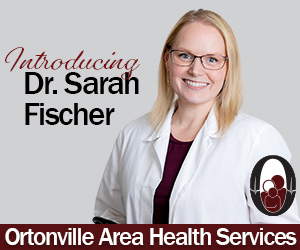
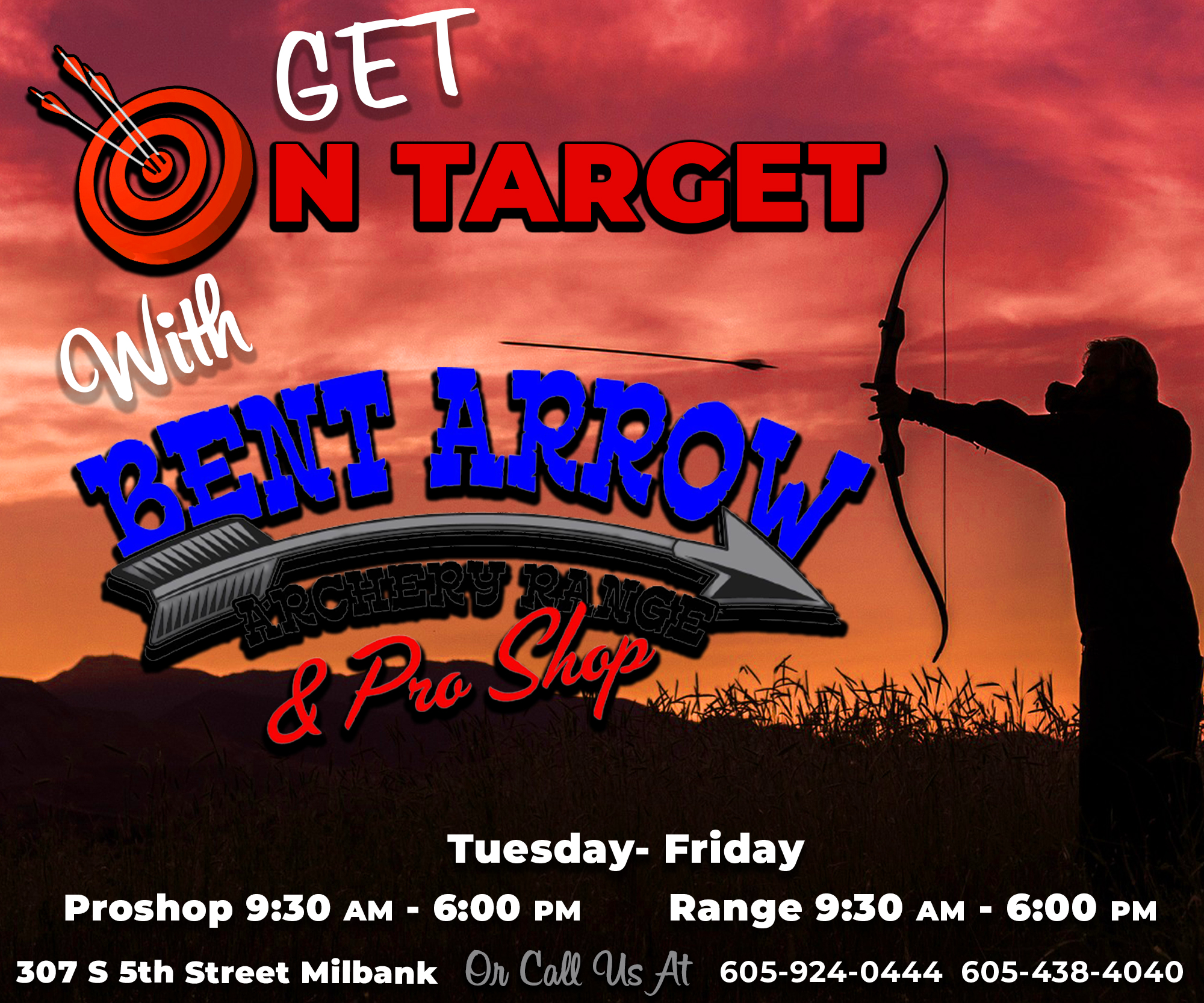
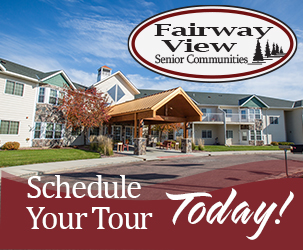


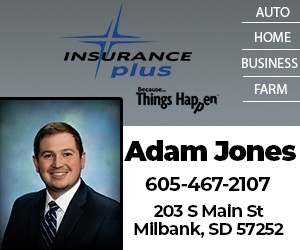


No comments so far.
Be first to leave comment below.